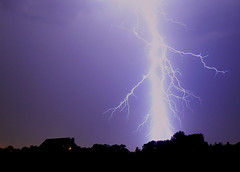| 6598901280 | foreshadowing | prepping the reader for the future; hints |  | 0 |
| 6598901281 | stream of consciousness | attempts to reproduce the full and uninterrupted flow of a character's mental process, in which ideas, memories, and sense impressions mingle without logical transitions. Need not use conventional grammar. |  | 1 |
| 6598901282 | flashback | scene that interrupts present action to depict earlier event |  | 2 |
| 6598901283 | frame story | story that contains another story/stories. Usually significant to the main story |  | 3 |
| 6598901284 | projection into future/flash forward | glimpses of the future; often creates suspense/curiosity |  | 4 |
| 6598901285 | narrative pace | the speed (ex: quickly, slowly) of the story/novel/poem |  | 5 |
| 6598901286 | point of view | the person or intelligence a writer creates to tell the story |  | 6 |
| 6598901287 | speaker | The voice used by an author to tell a story or speak a poem. The speaker is often a created identity, and should not automatically be equated with the author's self. See also narrator, persona, point of view. |  | 7 |
| 6598901288 | narrator | speaker of the story. Types: first ("I"; usually a major participant in the action; sometimes unreliable), second (rare), third limited (limited to one or only a few characters' thoughts/feelings), third omniscient (reliable, but can conceal or reveal at will) |  | 8 |
| 6598901289 | persona (mask) | "actor's mask"; 1st person narrator in fiction/poetry. View may differ from author's. |  | 9 |
| 6598901290 | dialogue | exchange of words between characters |  | 10 |
| 6598901291 | interior monologue | the stream of consciousness revelation of a character's internal thoughts; often relies on sub linguistic level (images and connotations reveal thoughts). |  | 11 |
| 6598901292 | parallel scenes | an invitation to compare/contrast different elements in the story |  | 12 |
| 6598901293 | denouement | final revelations that occur after the main conflict is resolved |  | 13 |
| 6598901294 | rhetorical questions | persuasive technique; questions that need no answer because its goal is to make you think, get it? |  | 14 |
| 6598901295 | gaps | blanks in text that must be filled in by readers (is it really there, or is it a product of different readers' perceptions?) |  | 15 |
| 6598901296 | sub plots | a 2nd plot (usually minor characters); usually resolved by events that figure into the main plot |  | 16 |
Narrative Techniques-AP English Flashcards
Primary tabs
Need Help?
We hope your visit has been a productive one. If you're having any problems, or would like to give some feedback, we'd love to hear from you.
For general help, questions, and suggestions, try our dedicated support forums.
If you need to contact the Course-Notes.Org web experience team, please use our contact form.
Need Notes?
While we strive to provide the most comprehensive notes for as many high school textbooks as possible, there are certainly going to be some that we miss. Drop us a note and let us know which textbooks you need. Be sure to include which edition of the textbook you are using! If we see enough demand, we'll do whatever we can to get those notes up on the site for you!

